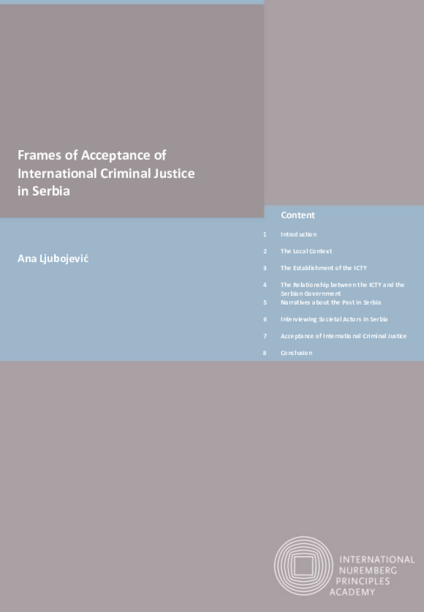Frames of Acceptance of International Criminal Justice in Serbia

About
The dissolution of the Socialist Federal Republic of Yugoslavia, which culminated in a four-year armed conflict from 1991 to 1995, triggered the establishment of the first ad hoc International Criminal Tribunal since the Nuremberg trials. The ICTY was set up by United Nations Security Council Resolution 827, which was passed on 25 May 1993 in response to the serious violations of international humanitarian law committed in the territory of the former Yugoslavia since 1991, and as a response to the threat to international peace and security posed by those violations. Today, more than twenty years after the ICTY began its mission, the question of the legacy and acceptance of international criminal justice by domestic actors is attracting significant attention. The main subject of this study is the acceptance of international criminal justice in Serbia by the most prominent actors at the political and societal levels. It will discuss the main forms, dynamics and drivers of acceptance. Hence, the context in which the acceptance occurs is defined by the following questions: Who accepts? What is accepted? Why is something accepted? When is something accepted? The empirical research underlying this study approaches these main questions, albeit indirectly, with the help of questions not directly articulating the concept of acceptance, drawing on interviews with selected informants representing the main categories of actors in society.
